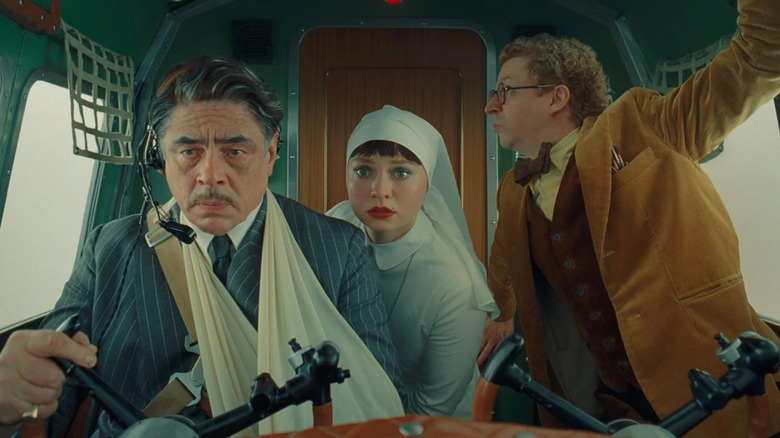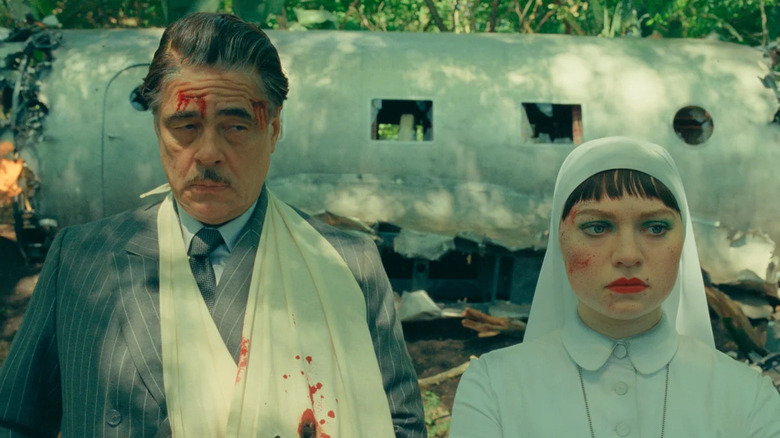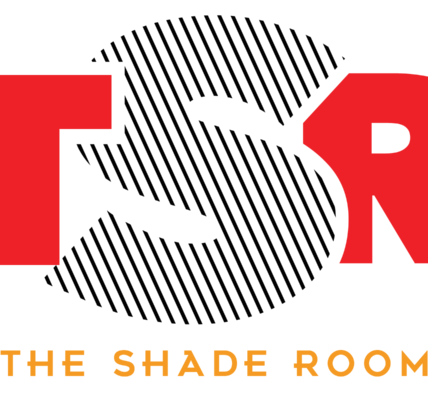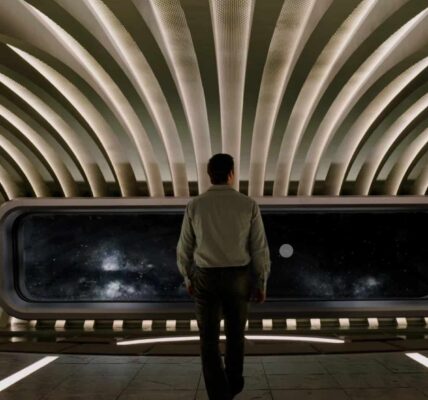This article contains Sweet spoilers for “the Phoenician regime”.
Since the fall of the Hays code, violence has become the most common (and commonly accepted) transgressive element in American cinema. When sexual content is always constantly avoided or decreased (sometimes for good reasons, often for bad), the general public has been formed not to clig an eye on a lot of blood shed. Despite the common appearance of violence in cinema, most films have a justification for its inclusion: either they use violence as a fantastic element, or highlight its effects to increase dramatic issues, or to horrify, etc.
However, while many films draw particular attention to their violent aspects, there are relatively few that can maintain a constant level of shock to their violence. A filmmaker who can claim the ability to do so is, for everyone, Wes Anderson. On paper, it would seem obvious that all violence in Anderson’s films would be shocking, given his reputation as a filmmaker from Arthouse whose work is more concerned with intelligence and mind than thrills. Anderson’s first films indeed indeed seemed to be based on their violence – it was certainly not above the comic potential of the slapstick, but the most upset moments of violence felt appropriately, such as the self -control of “The Royal Tenenbaums”. It is not “The Grand Budapest Hotel,” When the Vilmos Kovacs deputy (Jeff Goldblum) cut his fingers by a snacking door, it seemed that Anderson had learned to use violence as a dramatic element and a punchline.
Although the moments of violence in Anderson’s films are often extreme, they are also cleverly executed, partially and parcel of the director’s closely controlled aesthetics. In this way, Anderson’s violence perfectly captures something that few filmmakers do, which is its strange quality of the valley. “The Phoenician Program” is to be Anderson’s most violent film to date, and it works absolutely given the way he uses his violence to serve the general tone of the film and the situation of his main character.
Violence in “The Phoenician Plan” underlines the caricatural fate of its protagonist
Even if there have been cases of Anderson who uses moments of violence throughout his latest films like Little Bits of seasoning, “The Phoenician Scheme” shows that it will be a very spicy film a few seconds in his assets. During a flight sentenced to the private level of the industrialist ZSA-Zsa Korda (Benicio Del Toro), an attempted assassination is made on the life of Korda, which is apparently a recurring problem for the arms dealer. Korda survives, but his assistant does not do, because man is spectacularly blown in machine gun, which makes the plane develop a hole in his fuselage.
It’s Anderson’s way of putting the table for the film, not just his intrigue (which recalls a stereotypical spy adventure film of the 1950s), but his unique tone. In conjunction with the fact that Korda is not reduced to living (and surviving) many attempts over her life, Anderson makes violence that is both impactful and caricatural, resulting in global absurdism. In other words, the film, like Korda, considers violence both as an honestly dangerous and boring jaded.
The approach of violence in the film is not a new thing for Anderson in terms of effect. His films continuously manage events and situations with high issues with an impassive detachment; For the better recent example, do not look any further than The extraterrestrial meeting in “Asteroid City”. The difference is that violence in “The Phoenic Scheme” is put on throughout the film rather than appearing only at the peak or at a specific moment. There is something recalling the first cartoons of Jim Henson and Chuck Jones, in which violence in these works is also brutal and bizarre. In the end, the violence always present in the film helps to underline not only the fate of Korda, but also to set up his trip as a character.
At the beginning of the film, death has no meaning for him because his life lacks meaning, and it is the discovery of the value of life by his distance girl, Liesl (Mia Threrapleton), which allows Korda to try to change for the best. Korda’s spiritual and moral awakening does not decrease violence in the film, but makes it perversely more pleasant; His culminating fight with his sworn enemy, the uncle Nubar (Benedict Cumberbatch), is perhaps the most elaborate physical fight ever staged, and he turns out to be less “John Wick” and more like Merrie Melodies.
Use violence as a comic counterpoint to the film’s subtext
In the same way that Anderson undermines the drama with high issues with impassive humor and non-seventies, his use of violence in the “Phoenician scheme” contrasts and deepens what is ultimately a very tender story of Korda reconnect and learn to really love (opposite to objectively appreciate it) her daughter lie. Korda is a gruff man, to the point and to the obsessive spirit, and the violence from which he is subjected and surrounded is both a by-product and a cause of his character. In his world, hand grenades are hardly more than memories, to offer business partners such as chocolates. Anderson uses the pious lie to regularly take off this hardened exterior, revealing tenderness within the man of which he was perhaps not before. It is a character arc and an archetype that has been seen before – the man of hardened violence with a sticky environment – but Anderson comes there in its unique and biased way.
An additional aspect of the use of violence by the film is how it also provides a comic counterpoint to Korda’s commercial transactions, which makes its negotiations impregnated with literal lives or places of death. It is fun to interpret Korda and her efforts, traveling in the country of Phenicia by trying to be silent or otherwise his coterie of investors, like a metaphor of an artist who tries to obtain funding for their profession. Although Anderson does not act a direct comparison between Korda and itself as a filmmaker, the subtext is present for those who wish to shoot. Of course, this interpretation lends itself to its own comic counterpoint, with the Ego Korda-As-Anderson-Alter taking a bullet for its investors and distributing them hand grenades.
In the end, “the Phoenician program” is proof that Anderson now has a good understanding of the use of violence for dramatic and comic purposes, and sometimes both. Although there is certainly a nervousness of graphic violence in the cinema whenever it is used, there is a lot of charm for the version of Anderson by Bloody Mayhem. The filmmaker clearly has a kind heart, as shown by the frequency to which he has characters apologize verbally for violence on the screen. Although it is doubtful that we will never see the version of Wes Anderson of a Slasher film, “The Phoenic Scheme” indicates that, unlike a few years ago when This sketch “Saturday Night Live” was madeIt is now a little less improbable.








